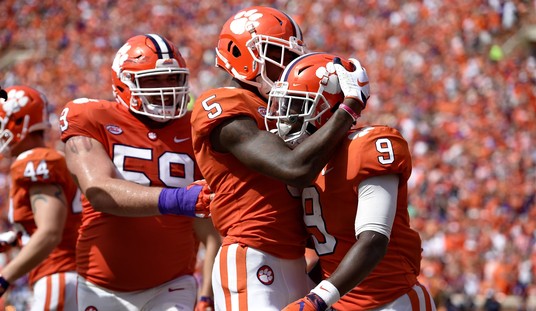Pepperdine University’s business school vaulted into the national Top 25 rankings a year ago, but like the business leaders that the school develops, the Graziado School isn’t one to rest on its accomplishments. Pepperdine is now embarking on a new initiative that could prove to be a game-changer: It is bringing distinguished alumni back into the classroom as unpaid advisers to students in the Presidential MBA program.
Noelle Nguyen went through the Presidential and Key Executives MBA program a few years back. E-commerce retailer of USA-made products, American Love Affair, was her Presidential MBA capstone project (which went live after she graduated), and has since garnered much national press attention. But she and other successful alums wanted to give back to the school that shaped them and their careers.
“What students proposed to professors, is we said ‘Look, we loved our experience so much that we want to come back and advise — for free,'” Nguyen says. “Free” isn’t a word one hears often in business or anywhere else, and when you do hear it, there is usually a catch. But there was no catch in this case.
“Our alums have always been very keen on giving back,” says Dr. Demos Vardiabasis, economics professor and former adviser to Gov. Arnold Schwarzenegger. “This is yet another display of that initiative.” Nguyen credits him and Dr. William Smith, the Presidential MBA committee chairman, for being the first at the Graziado School to embrace the initiative.
Robert Radi, one of the inaugural volunteer advisers, agrees that Pepperdine’s core values played a role in making the initiative possible: “The Pepperdine motto is cemented onto the moral value of giving back. Give back to our communities, our colleagues, our peers, and our school. It is most appropriate to contribute to the professional development of those that are joining the 43 year tradition of the Presidential MBA at Pepperdine.”
The Graziado School’s Presidential MBA programs cater to established professionals who seek to continue their education while they keep working and taking care of their families. The classes stay small, with just 15 to 20 students at a time, they meet on weekends, and the alumni advisers are available in and outside of the classroom during the 15-month schedule. They attend all classes with students and are advisers to the current crop of students, but they are not supplanting the existing faculty. They’re an add-on that both students and professors are finding to be valuable.
Mark Borao, a partner at Ernst & Young, says “Students have been taking full advantage. I have personally had about a half dozen calls from current students wanting to bounce business ideas and concepts off of me…they see me (and the others) as an independent set of advisers who are vested in them.”
As for faculty, any initial hesitation to try out a new program has been quickly set aside as the advisers’ value has shown through, according to Associate Dean Dr. Gary Mangiofico. The faculty, he says, has been “Very supportive,” adding that “Much like we teach, in terms of how to lead change in business, we practice it ourselves here. We involve the faculty for this degree in the dialogue and the discussions. It wasn’t like the alumni demanded to do this, or the administration just created it. Everybody was involved and felt good about it.”
“Our profs don’t just teach change,” Nguyen says, “They embrace change, and they’re demonstrating that by their actions” in embracing the alumni adviser initiative.
Not only did the alumni advisers not want to be paid, they had an idea for how to spend the money that Pepperdine might have spent on their salaries. They wanted that money put into additional, far-reaching marketing programs for the Presidential MBA, so that prospective students could hear about it and take advantage of the opportunity. That’s key, as the students do not all live or work in the greater Los Angeles area, where Pepperdine happens to be located. Students come from the full spectrum of industries, and work literally all over the world. So marketing this program is turning out to be a global effort. Once enrolled, students do commute to Pepperdine’s campuses to attend the classes approximately one weekend per month.. A couple of students are commuting from as far away as Dubai and Kazakhstan.
“The class structure remains mostly unaltered, and it is guided by the individual styles of the Professors in each module,” says Radi. “What changes is the dynamic interaction by students with individuals that have excelled in specific modules of the Presidential MBA, and can provide valuable insights during class, and most importantly in between classroom sessions.”
The first class that includes the alumni advisers started in April 2014. The advisers assist in one of five concentration areas and have each committed to help in approximately 10 of the MBA program’s 50 units, stretched across the class’ three to four month lifespan. “It’s a lot of hours, a lot of commitment, a lot of time,” Nguyen says, “But we see that it’s going to benefit students. They’re getting unbiased opinions. They are getting help from people who are there because we want to be there and not because we have to be there.”
“We’re industry professionals who are supplementing the Profs’ rich experience and material with the latest industry ideas and practices,” she says. “We’re there to add value. Based on my research, there’s nothing else out there that’s like this” in the United States. “We’re contributing to the in-class discussions and outside the classroom, we’re helping to solve conflicts that may arise. Our motto is ‘Serve. Solve. Satisfy.’ We have one goal and that is to enrich the student experience, because great students will become even better business stewards, and in the end, everyone will gain from it, including students, alums, the school, and our community.”
The Pepperdine Presidential MBA program covers five modules — leadership, economics, finance, marketing, and strategy. The alumni advisers each come with expertise in their area, and each take one of those modules. Students will have the opportunity to interact with the full roster of advisers over the course of their program.
The adviser initiative creates a win-win-win for the students, the university and the advisers themselves, according to Dr. Vardiabasis: “The university and program gain from alum engagement and investment. Students gain from a broader learning experience as well as a larger support system. Alums gain from continuous learning and the ability to give back to the university. It really is a triple-win scenario.”
Adds Nguyen: “Some alums may want to teach at some time in the future. This initiative is a good chance to see what teaching is really like. When [the alumni advisers] are back in the classroom, we’re always learning,” both from the professors and from the students, who are already accomplished business executives themselves.
If there is a downside, it might be in the possibility that the alumni advisers get burned out from tending to their own careers and families while they are also unpaid advisers at Pepperdine. That’s a busy life. There’s already a plan in place to prevent the burnout before it can happen. The current five advisers and the faculty are constantly on the lookout for students who perform well in the program and show leadership qualities. Being asked to serve as an unpaid adviser is a distinct honor and privilege, Nguyen says, because students must not only be good academics and professionals, but also values-centered human beings. Those students are likely to be recruited to become advisers in the future, according to Nguyen, and there are already committed advisers “on deck and ready to go” for the next cohort should this initiative prove to be a success. Over time, she says Pepperdine’s business school’s brand will gain in value as a large community of alumni advisers builds up around each successive generation of students. So the resource of alumni advisers will not be depleted anytime soon.
According to Dr. Smith, “Prospective students need to realize that the [Presidential MBA] program’s decades-long commitment to customized approaches to student learning is made even stronger by having this additional resource available to them.”








Join the conversation as a VIP Member